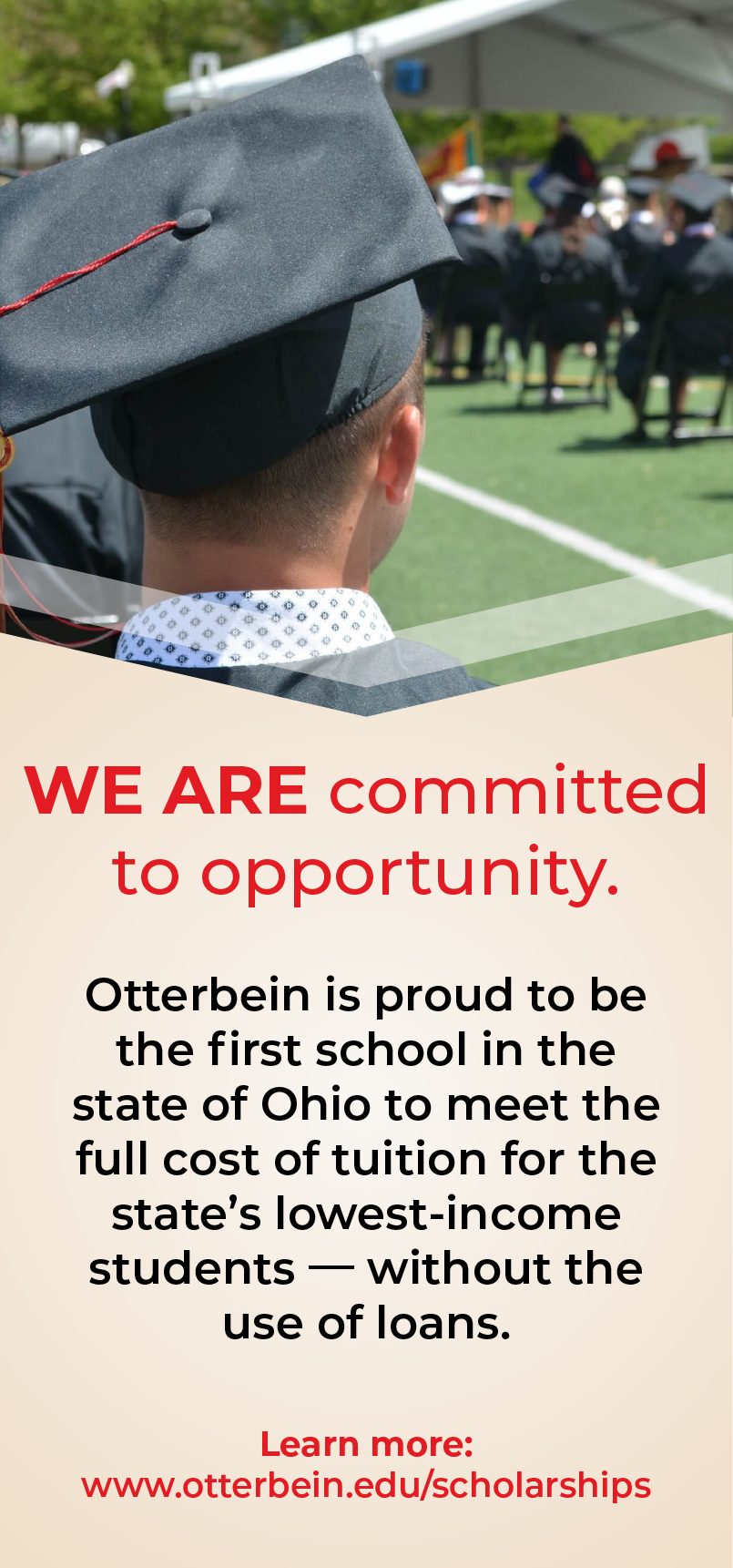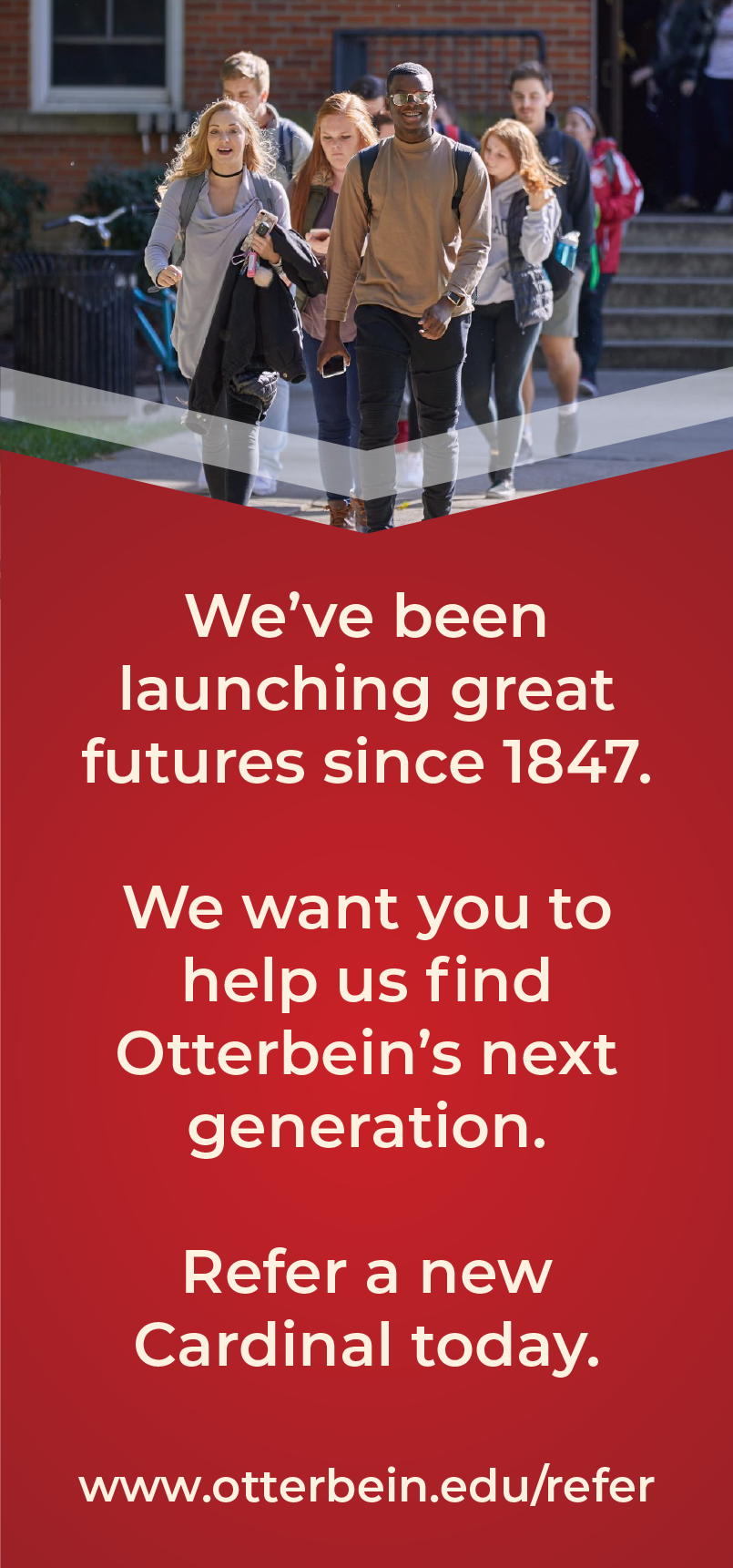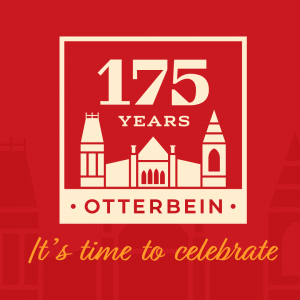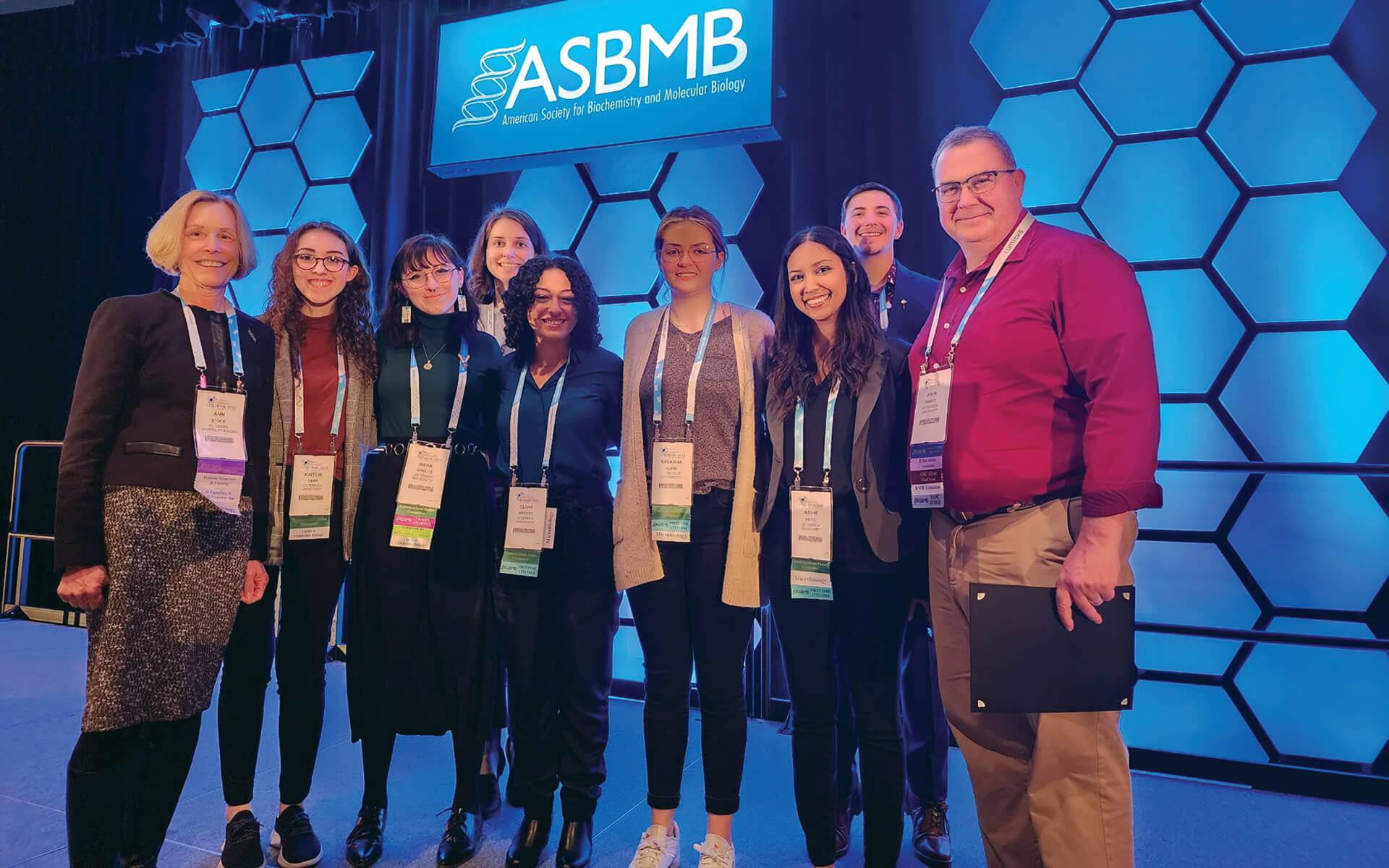
Tansey is the faculty adviser of the ASBMB student chapter at Otterbein, which won the Outstanding Chapter Award in 2023, 2018, 2014, and 2012 – more times than any other school.
Faculty 
Faculty Excellence
At Otterbein University, where personal attention and mentorship is key, supportive instructors are preparing the next generation of scientists, teachers, leaders, and professionals to tackle the toughest issues with creativity and critical thinking. Through their own professional journeys, professors are showing students how to ask the right questions, look for the right answers, and work together to generate change — they are inspiring students to explore new ideas and build a better world.
National Fellow Inspires Students to Believe in Themselves
Chemistry Professor John Tansey, director of the Biochemistry and Molecular Biology Program, has been named a fellow of the American Society for Biochemistry and Molecular Biology (ASBMB). His laboratory examines the role the PAT proteins play in lipid storage and disease — and the work is conducted by undergraduates under his guidance.
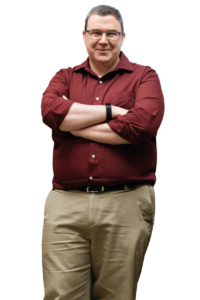 How would you describe your teaching style?
How would you describe your teaching style?
My teaching style is interactive. I like to ask students a lot of questions that get them to think. Biochemistry can seem like a list of hundreds of things to memorize, but finding patterns and recognizing how life uses and reuses these patterns is essential to success. I also like teaching in the laboratory. I’ve had nearly 50 students conduct longer-term research projects with me and I’m very proud of them and their accomplishments.
How do you inspire your students to achieve their goals?
I think the main thing that students need to know is that while they may have lofty goals, they are attainable if they have a plan and work towards it. Advising students is key. Becoming a scientist, physician, veterinarian, or just about anything in life doesn’t happen overnight. There are many steps along the way. We help scaffold many of those experiences they need for success. It’s also important that people know they have someone in their corner. We believe in our students and their dreams. Sometimes it’s a case of getting them to believe in themselves.
How has your involvement with ASBMB helped you grow professionally?
My involvement in ASBMB has helped me develop a network of educators and scientists that has kept me on top of scientific advancements as well as shifts in teaching philosophy and pedagogy. My network has provided collaborators, but also access to experts who I can rely on if I have a question in the lab or classroom.
What does it mean to you to receive this national recognition?
Becoming a Fellow and being recognized by a society that I have value and respect for means so much to me. I’ve been a member of ASBMB for nearly as long as I’ve been at Otterbein, and I’ve attended meetings of the society and published in their journals going all the way back into graduate school. It’s also meaningful to me to be recognized as a scientist and educator. I’m so thankful to them and to those who nominated me.
How has your involvement with ASBMB helped you grow professionally?
My involvement in ASBMB has helped me develop a network of educators and scientists that has helped me immensely. It has kept me on top of scientific advancements as well as shifts in teaching philosophy and pedagogy. My network has provided collaborators, but also access to experts who I can rely on if I have a question in the lab or classroom. I’ve made lifelong friends through the society.
What do you hope students get from their involvement with ASBMB?
ASBMB is a fantastic organization for students in that it helps provide different opportunities for students depending on their interests. We have a student ASBMB chapter on campus that helps provide professional opportunities, networking, and scientific outreach. The society has scholarships, grants, and awards for students to conduct research, travel to meetings, and organize scientific outreach opportunities in their communities. Over 80 Otterbein students have attended the national meeting of ASBMB and have won awards for their research and outreach. ASBMB has a student honor society, Chi Omega Lambda, and Otterbein routinely has several students inducted each year. Otterbein has been awarded the national chapter of the year four times, more than any other school!
How would you describe your teaching style?
My teaching style is interactive. I like to ask students a lot of questions that get them to think. I’m not a fan of simply recalling facts. Biochemistry can seem like a list of hundreds of things to memorize, but finding patterns and recognizing how life uses and reuses these patterns is essential to success. I also like teaching in the laboratory. I’ve had nearly 50 students conduct longer-term research projects with me and I’m very proud of them and their accomplishments.
What inspires you to teach?
I really enjoy teaching. I had a lot of great, influential teachers growing up and they really helped shape my thinking and how I view science. I also had a few classes where I didn’t have the best experiences. I try to make sure everyone has a meaningful experience in my class and can use what they have learned in their life.
How do you inspire your students to achieve their goals?
I think the main thing that students need to know is that while they may have lofty goals, they are attainable if they have a plan and work towards it. Advising students is key. Becoming a scientist, physician, veterinarian, or just about anything in life doesn’t happen overnight. There are many steps along the way. We help scaffold many of those experiences they need for success. It’s also important that people know they have someone in their corner. We believe in our students and their dreams. Sometimes it’s a case of getting them to believe in themselves.
What is the benefit of teaching and learning at a small university like Otterbein?
I think the value of teaching and learning at Otterbein comes from the interactions and access you have with people. Students and faculty work closely together and know each other. I don’t think you can have those experiences at larger institutions with thousands of students. At Otterbein, it’s more a case of one-on-one mentoring. This happens both in the classroom and lab.

